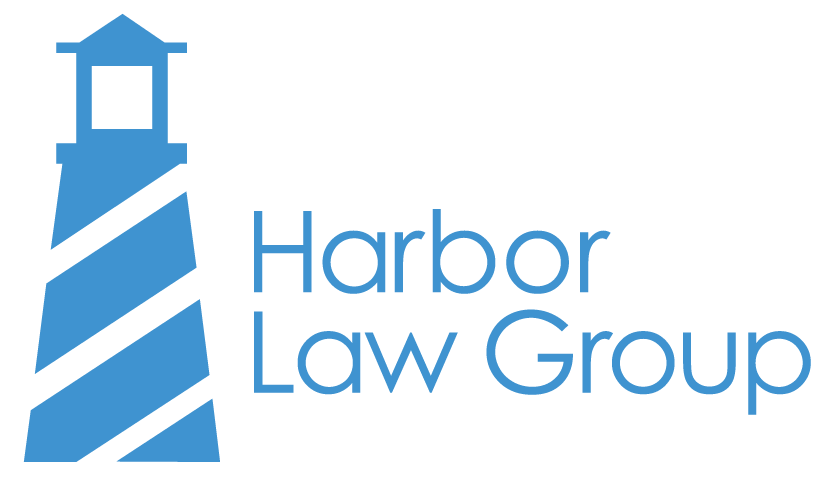Your Estate Planning Checklist for Washington State
At The Harbor Law Group, we are adamant about helping every single one of our clients (and, let’s be frank, everyone we know . . . or meet) get their estate properly prepared. Whether that is by drafting a full plan or just providing free and practical advice, our goal is to improve every client’s situation as much as we can.
The Basics: Information You Should Keep Updated
Every adult should have some primary documents to make sure their wishes are known at the time of their death and minimize difficulties for loved ones. At a bare minimum, you should have:
- An updated Last Will and Testament that reflects your current wishes, even if it is a very basic one; and
- Medical and financial powers of attorney that will allow your loved ones to manage your affairs in case of your incapacity.
We strongly recommend that you do not use templates. Free or pre-packaged forms are generalized and may reflect outdated laws or requirements. They do not consider your individual circumstances and are not always legally binding the way they are drafted. Moreover, signature formalities are often not followed as that requirement can vary from state to state.
For example, both the Will and power of attorney documents require either two (2) unrelated and non-caregiver witnesses and/or a notary. If you don’t follow the proper signature formalities, the document will have absolutely no legal effect. For this reason, we recommend that you consult with a competent estate planning attorney (preferably us!) to draft and complete these documents.
Do You Need Additional Planning?
Although the Last Will and Testament and powers of attorney are absolutely essential, depending on your personal situation, you may require more sophisticated planning. Given Washington’s estate tax floor of $2.193 million, or the fact that you have young children or special charitable inclinations, you may have needs that go well beyond a Will.
Our team understands these important considerations and addresses each in full starting during our first meeting together. Following is a non-exhaustive checklist of discussion points that we will touch on:
- Who your beneficiaries are and whether you have charitable goals;
- A plan to reduce your estate taxes;
- The need, or lack thereof, for a living trust to avoid probate;
- How a living trust works, and when it makes sense to create one;
- How to protect your property from your creditors;
- How to protect your beneficiaries from inheriting too early;
- How to ensure that your children are fairly accounted for in a blended family;
- How to select an appropriate guardian for your kids;
- How you and your life partner (whether married or not) can create a plan together; and
- The creation of irrevocable trusts or other special types of trusts.
We will help ensure that none of these important issues are overlooked.
Practical Tips
In addition to helping you with the formal documents, we are always willing to impart practical advice that you can complete on your own. Without ever stepping foot into an attorney’s office, you can:
- Double-check the ownership and beneficiary designations on your accounts;
- Create a list of personal property items that will go to specific individuals;
- Create a list of your assets and accounts, along with any advisors that are linked to those accounts; and
- Choose a funeral home, and leave those instructions with your loved ones.
Double-checking your accounts
There are numerous assets that pass outside of probate (which is the court process of re-titling assets to the heirs). Brokerage accounts, retirement accounts, life insurance, checking accounts, and even real property can effortlessly pass to your heirs with the proper beneficiary designations.
You should double-check to make sure that your accounts are designated to go to the appropriate people. And remember, when you designate your children as a beneficiary, they will inherit those accounts when they turn 18 years old. If this is not your preference, there are ways to plan that can delay that eventuality.
If you own your home, you should also check the deed at your local county recorder’s website to ensure that it is titled properly. For example, if you are married and the home is community property, ensure that your deed says something like: “Bob and Sue Smith, a married couple, holding the title as community property with rights of survivorship.”
Without this designation, unintended consequences could result, and you could be forced into probate upon your spouse’s death over a house you thought was community property. In Washington State, searching for deed information is easy and free. You can check out the Pierce County website here or the King County website here.
Listing your personal property
This is a no-brainer. You can and should begin listing items of personal property and to whom they will pass. You can use a pad of paper or post-it notes. Just make your wishes, and the location of your list, known to your loved ones! This can take away the potential for unnecessary arguments over grandma’s wedding ring, grandpa’s watch, and other items of sentimental value.
Asset list
This one is so important! You should also keep an updated list of your assets, accounts, and any advisors that could help your heirs categorize and identify your assets during your incapacity or after your death. If you would like a copy of our simple template, please contact us and we will send you one. You can save your loved ones days and weeks of work and significant expense by simply leaving a detailed list.
Choose a funeral home and disposition process
This sounds morbid, but making this selection early can save your family from serious headaches and heartache. Whether you choose cremation or burial, you should consider choosing a funeral home now that can assist your family with the moment immediately following your passing.
We have heard from countless clients who have told us how wonderful it was to simply pick up the phone, know exactly whom they were calling, and have the funeral home take over with the next steps. Those initial moments after someone’s passing are fraught with anxiety and confusion. This is one small thing you can do to ease your family’s burden.
Administering the Estate and Probate
This is the flip side of estate planning—estate distribution. If you have suffered the loss of a loved one, and regardless of whether they had a Will, a Trust, or no Will at all, their assets are going to need to be distributed to the appropriate heirs.
This may require probate, the completion of beneficiary forms, trust administration, or simply updating the deeds to real property. Regardless, we can help you navigate the difficult and emotional process of administering the estate of your loved one. We have experienced it first-hand and know that the process is totally overwhelming.
Importantly, if you are going through the process right now during the time of COVID-19, it is incredibly difficult to get the proper documents completed and on file, with the court, since they are presently closed to the public and require messenger service for filing. We are well-versed in taking the burden off the shoulders of our Washington clients and easing them through the entire process.
Let Us Help You and Your Family!
The Harbor Law Group is a woman-owned law firm specializing in estate planning and business law in Washington State. We know people are sometimes reluctant to initiate an estate plan for fear that it will be burdensome, depressing, and boring . . . but we really do make planning as fun and painless as possible!
Contact us today online for a free consultation and a flat fee for estate planning.



